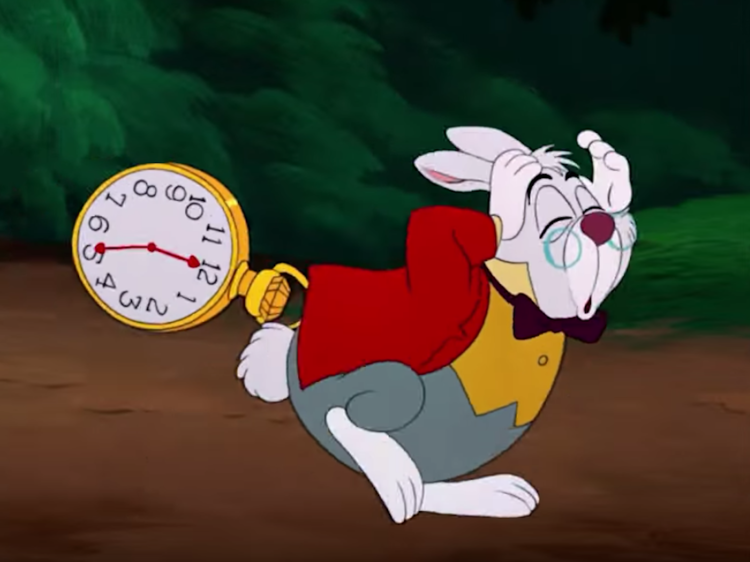|
What was a good question you asked today? Says the mom.
Our goal today is for the class to ask three "umm" questions. Says the teacher. Learning is about the questions you ask, not about the facts you have memorized. What are "umm" questions? "Umm," questions are questions that make the teacher go, "umm, that's a good question." "Umm," questions show that students are thinking deeply about the topic. "Umm," questions are tough to answer and sometimes take the class off track (those darn pacing guides). If you have ever been around a toddler or preschool-aged child, then it is very likely you have been barraged with a plethora of questions. They are so curious. Yet as a middle school teacher, I have noticed that curiosity seems to have disappeared (at least during class). Where did the wonder at the world go? IMO the world (school) has beaten the questions out. "Don't ask questions — that was the first rule for a quiet life with the Dursleys." ― J.K. Rowling, Harry Potter and the Sorcerer's Stone Teachers often are like the Durselys. The reasons include but are not limited to staying on pace with district expectations, preparing for the end-of-year exams, and the fear of the room devolving into a lord of the flies type anarchy. In a world of Google and Siri, students (all of us really) need to do more than memorize facts. The facts are at our fingertips. "My investment of time, as an educator, in my judgment, is best served teaching people how to think about the world around them. Teach them how to pose a question. How to judge whether one thing is true versus the other." – Neil deGrasse Tyson What are you doing to encourage your kids (either personal or students) to ask more "umm," questions? Are you asking "umm," questions yourself? Like the mom, instead of asking, what did you do today, try asking what is a good question you asked in class. Like the teacher give at the start of class, give your students an "umm" question goal. And don't let those good questions fall by the wayside. Be okay with giving time to "get off task". Remember, "It is not the answer that enlightens, but the question." – Eugene Ionesco.
1 Comment
"Victims have big TVs, leaders have big libraries."
-The Tycoon, The 5 am Club "Poor people have big TVs, rich people have big libraries." -Jim Rohn, an American entrepreneur, author, and speaker The 5 am Club: Owning Your Morning, Elevate Your Life by Robin Sharma is an interesting book. I am on my second listen on Audible. I may be a little bit in love with this book, even though I almost quit listening to it the first time. The formatting of this self-development (formerly known as self-help) book is different from any book in this genre that I have ever come across. Instead of the author telling us how to make our lives better, Sharma has taken himself out of the equation. The concepts covered in the book the reader learns about via a hallmark movie type story (I mean that in the best possible way). The main players in the story are:
"There is one who makes himself rich, yet has nothing; And one who makes himself poor, yet has great riches." -Proverbs 13:7 As the book opens, the tycoon is described as a homeless man. Although a bit skeptical (guess which one), the artist and the entrepreneur trust the homeless man/ tycoon and take him up on his offer to go to his island "called solitude." Even if you are not a religious person, we have all heard stories of characters who aren't beautiful (or are different in some way from the norm) offering help to the protagonist. Sometimes the protagonist refuses to help (or refuses to receive the support offered), and they are punished. Disney's Beauty and the Beast comes to mind. In other stories, the protagonist (sometimes against others' warnings) takes the help, and their path to the goal is eased. But I think that modern media gives us very few of these stories. The different are usually just plain ole bad/ evil and have nothing to offer. The central learning from this self-development book can be simplified into three points.
Granted this those points are not just with Sharma but with self-development books in general. The pull yourself up by your boot straps/ all you have to do is... The artist and the entrepreneur both have the time/ resources to just up and leave to go on an adventure with the billionaire. I have been a single mother since 2001. If I had gone to this conference and meet the homeless man, I would not have been able to go (as much as I would have wanted to). Both characters also have freedom in their careers (the entrepreneur owns her company, and the artist is a freelancer. What about those who have to clock in/out of a 9 to 5? And if we forget about the fictional opportunity of the adventure (gosh, Jamie, that's why the man wrote the book). The book's main concept is waking up at 5 am and using that first hour to change your life, but although we all have 24 hour days, not everyone's 24 hours are equal. Beyonce can get more out of her 24 hours than I am. She has a staff that probably includes a chief, trainer, personal shopper, and things I haven't even thought of. I can get more of my 24 hours than someone who has to work zero-hour contracts (and therefore has to work multiple jobs). I have health insurance, some savings, and I don't have to worry about having enough to pay my bills. This book and many others like it do not acknowledge that resources (even time) are not applied equally to everyone in society. "When people talk about the good old days, I say to people, 'It's not the days that are old, it's you that's old.' I hate the good old days. What is important is that today is good." -Karl Lagerfeld In the past, they had the answer. If only we didn't have modern technology, we all would be perfect people. It erks me when authors use the past as shorthand for all that is right and good and paint technology with the brush of evil. There have always been humans who are exceptional (the overachievers and the layabouts), and there have always been humans who are just getting through life (the majority of us). I do not understand why writers feel the need to compare the imperfect present with the supposedly perfect past. I think this comparison takes away from the actual message. The message that no matter your place, position, or personality, if you follow the prescribed plan, you to can be great. Why is every self-development writer a Luddite? I wonder if they were writing their books if they would hate on using the printing press, the steam engine, or the loom. I agree that all new technology comes with contemporary issues and consequences. Still, the answer is not getting rid of the technology. Like your daily coffee (from your coffee house of choice) isn't making you poor, having a smartphone isn't making you stupid and lazy (I can be lazy without using my phone, thank you very much). The 5 am Club doesn't include any new innovations in the world of self-development; it is a nice easy listen. If you purchase the Audible, it comes with a PDF that contains the models that are covered. Have you read the 5 am Club? What did you think about it? Do you have any self-development suggestions (I am looking for suggestions written by people of color and women).  Five weeks into the school year, and I am just making my first post. Not to make excuses, but the start of this school year has been particularly hectic. I have taken on additional leadership roles within my school, and I am teaching a course I haven't taught in a couple of years. On top of the aforementioned professional changes, my personal offspring is dual enrolled at SCAD (Savannah College of Art and Design). I wouldn't wish any of these opportunities away but golly gee more times than not these past five weeks have been challenging. As professionals and parents, we often seek (or even demand) the benefit of the doubt when you are dealing with difficult situations. How often as a teacher have you been late with report card comments, or you didn't call a parent back within 24 hours. Or maybe you are the teacher who has to run to the copier during the passing period because you forgot to make copies for your afternoon class. I know I am guilty of at least one of these things. Why do we as adults leave little room for mistakes to happen in our classrooms when we (at least me) make mistakes all the time. Mistakes: missing a deadline, not fulfilling the criteria, or failing to attempt the assignment should be a jumping-off point for learning to happen. And while sometimes that learning is content-based in my experience, it is often more important to facilitate kids in discovering methods to help them deal with the high expectations. Learning new processes on top of learning new information can be both exciting and frustrating. As a professional adult person, I sometimes need a break or a helping hand to deal with new challenges. I sometimes want to quit, or I sometimes need to vent, but that does not mean I am a bad, lazy, terrible teacher. If you have a student who is struggling to meet the expectations, remember they are not bad, lazy, or terrible either. They are learning. They are a senior in high school who is taking two online college courses and needs to learn how to stay organized and how to navigate the online system. They are a grade seven student who is new to international schools and doesn't yet speak much English. They are a grade nine student who is new to high school and is participating in sports and other school groups. Yes, content is important but building students up by teaching them skills to help them become a better student, and a better human is even more important. |
Jamie HartA teacher from the United States of America, currently teaching abroad. I teach science to middle and high school students. I enjoy reading and doing nerd things. Archives
April 2023
Categories
All
|


 RSS Feed
RSS Feed
